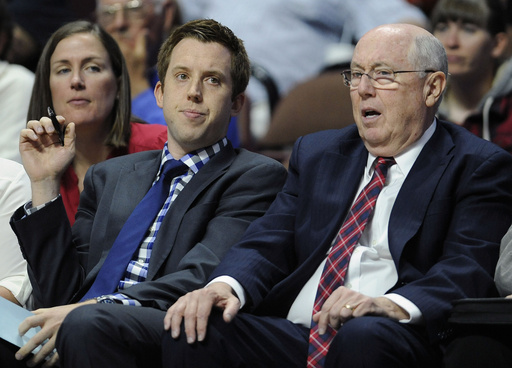
Erik Spoelstra recently achieved a notable milestone in his coaching career, quietly marking his 17th season as the head coach of the Miami Heat. This achievement places him among the top tier of NBA coaches with the longest uninterrupted tenures with a single team; only Gregg Popovich of San Antonio and Jerry Sloan of Utah have held their positions longer, at 29 and 23 years respectively.
For many coaches in the modern NBA, such longevity seems almost unattainable. In fact, half the league’s coaches—15 out of 30—are in either their first or second year in their respective roles. The current season has already seen eight coaching changes, and with two months remaining, more transitions could occur as teams evaluate their performance.
“This reality is a bit hard to swallow,” Spoelstra commented on the current landscape of coaching. “It disheartens me to reflect on that statistic because there’s a pool of excellent coaching talent out there. If they were afforded the same continuity and belief from their organizations, many could potentially attain the success that I have enjoyed here.”
The concept of “job security” in coaching roles has become largely meaningless, particularly in today’s environment. In stark contrast to the NBA, the WNBA has also undergone significant changes, with 12 teams currently competing but seven of those without head coaches. The Dallas Wings, for instance, are in search of their fourth head coach within seven seasons. Notably, the Atlanta Dream, despite achieving playoff success, made the decision to part ways with head coach Tanisha Wright. Additionally, the Indiana Fever recently let go of coach Christie Sides after an inconsistent start turned into a playoff appearance. Lastly, Stephanie White of the Connecticut Sun and the organization recently parted ways even after back-to-back semifinal runs.
The WNBA has not aimed to follow the pattern set by the NBA, but the parallels still exist in the frequent changes at the coaching level. After her termination, Sides expressed on social media her commitment to legacy, saying she hoped to “leave it better than you found it.”
However, the NBA remains the front-runner when it comes to impulsivity regarding coaching decisions. The latest offseason has shown quite a few unusual hiring and firing patterns. Notably, the Los Angeles Lakers have hired JJ Redick, who had only previously coached fourth-graders. Meanwhile, the Phoenix Suns parted ways with previous champion Frank Vogel in favor of Mike Budenholzer—another champion who claimed his title against the Suns in 2021. JB Bickerstaff became a historical figure by leading a Cavaliers team without LeBron James to a second-round playoff finish for the first time in over three decades, yet he also found himself dismissed.
Bickerstaff has since landed a new position in Detroit, which recently dismissed Monty Williams after just a single season despite a remaining contract worth approximately $65 million. Bickerstaff aptly stated, “You just keep doing the job you’re supposed to do,” emphasizing the unpredictability of coaching tenures.
His words resonate with the history of coaching changes in the league, where Popovich’s own coaching career began during the 1996-97 season when he replaced Bob Hill after just 18 games. The Spurs’ fortunes dramatically shifted with the arrival of Tim Duncan, but it’s worth noting that a record of 17-47 might not have secured Popovich a second chance in today’s climate.
Since Popovich’s tenure began, the league has experienced a staggering 300 coaching changes. During that span, 183 different individuals have taken on coaching roles, with 78 coaches managing to lead multiple teams. Legendary names like Alvin Gentry, Mike D’Antoni, and Doc Rivers have passed through five different franchises within these years.
Willie Green, head coach of the New Orleans Pelicans, entering his fourth season, shared his perspective: “You’re always striving to be the best that you can be. However, you must recognize that these positions often come with expiration dates.”
It appears that some coaches, like Popovich, Spoelstra—and even Steve Kerr of the Golden State Warriors—enjoy a degree of stability that others don’t. Meanwhile, Joe Mazzulla has solidified his place after leading Boston to an NBA championship. Other coaches across the league are navigating murky waters, aware that job security can be fleeting.
Spoelstra stated, “In just the last two years, there have been 14 coaching positions that have opened. This makes the state of coaching concerning as coaches are rarely given adequate time to instill culture, develop necessary habits, and overcome adversity. I’m thankful for the support and structure that I have here.”
